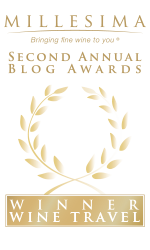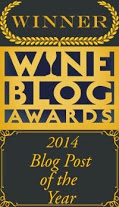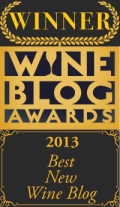 Last week, I posted about my visit with Brian Bicknell of Mahi Wines. After our boat excursion on the Marlborough Sounds followed by an impressive wine tasting at his cellar door, I took off for a weekend in idyllic, low-key Nelson to spend a few days with the wine community out on the far northwestern tip of the South Island, not far from renowned Abel Tasman Park. My first stop in Nelson was with the team from Richmond Plains and Te Mania, owner and sales director Lars Jensen and winemaker Steve Gill. Initially separate wineries, Te Mania and Richmond Plains eventually merged, retaining individual labels, but converging ownership and winemaking. Gill, who has been there since 2009, was my steward that morning. I had sent out a request prior to arriving in NZ suggesting to winemakers eager to break from the traditional winery tasting format, that I was keen to get outside into the sunshine and do something active, if convenient. Taking me up on the offer, Steve planned a picnic of local fish, spreads, crackers, and cheese, plus all the wines for tasting, to take out on a morning bike ride along the Nelson/Tasman Great Taste Trail.
Last week, I posted about my visit with Brian Bicknell of Mahi Wines. After our boat excursion on the Marlborough Sounds followed by an impressive wine tasting at his cellar door, I took off for a weekend in idyllic, low-key Nelson to spend a few days with the wine community out on the far northwestern tip of the South Island, not far from renowned Abel Tasman Park. My first stop in Nelson was with the team from Richmond Plains and Te Mania, owner and sales director Lars Jensen and winemaker Steve Gill. Initially separate wineries, Te Mania and Richmond Plains eventually merged, retaining individual labels, but converging ownership and winemaking. Gill, who has been there since 2009, was my steward that morning. I had sent out a request prior to arriving in NZ suggesting to winemakers eager to break from the traditional winery tasting format, that I was keen to get outside into the sunshine and do something active, if convenient. Taking me up on the offer, Steve planned a picnic of local fish, spreads, crackers, and cheese, plus all the wines for tasting, to take out on a morning bike ride along the Nelson/Tasman Great Taste Trail.  Signature Wines and Prices:
Signature Wines and Prices:
- Richmond Plains Sauvignon Blanc NZ$ 25
- Richmond Plains Pinot Noir NZ $25
- Te Mania Sauvignon Blanc NZ$25
- Te Mania Reserve Pinot Noir NZ$ 35
What philosophy guides your viticulture and winemaking? My philosophy is that wine is a magic blend of pleasure and healthiness. Organic viticulture and oenology means that our wines are healthy for the environment and for drinking. I have had winemaking experiences around the world (California, Burgundy, Alsace, and the Mosel) and have learnt that if you have a great site and healthy vines you will make great wine that is unique. Biodynamics: I have always felt that there is a spirit and energy in everything and that respecting this increases the positive energy in life. Richmond Plains was the first in NZ to make certified Organic/Biodynamic Sauvignon Blanc and Pinot Noir. What is your biggest challenge as a winemaker (e.g., volatility of Mother Nature, expense to income ratio, having to actually market your wine)? Having our wines judged in wine competitions where a judge spends minutes tasting the wine. It’s like trying to know someone through speed dating; wine should be experienced with food over an evening. It’s the difference between shaking hands with someone, followed by a quick chat, and spending the evening with someone. We have been very successful with wine competitions but I wish they didn’t exist as wine should not be a competition, it should be a celebration! What are the benefits and drawbacks of grapegrowing/winemaking in your region? The benefits are that we have the highest sunshine hours in NZ, a cool climate that makes crisp refreshing whites and aromatic elegant Pinot Noir. Another benefit is the two distinct soils types (Waimea river gravels and Moutere Clay) which produce wines that reflect these soil differences. An ironic drawback is that we make amazing wine from so many different varieties that we haven’t a single variety for which we are recognized. This has resulted in a recognition for aromatic wines which spreads from Sauvignon Blanc to Pinot Noir. Another drawback is that we are a small region with artisan family owned wineries that struggle to get exposure when competing with large, Marlborough, foreign-owned wineries with big marketing budgets.
What excites you most about New Zealand wines right now? Pinot Noir. With increased vine age and viticulture/winemaker experience, there are consistently exciting wines coming from the Pinot Noir regions. And they are great value! How do you think Americans (or the outside world) perceive NZ wines? Where the hell is NZ? They make wine there??? (only joking!) I think that most Americans know we produce great Sauvignon Blanc, though there is a growing realization of how good our Pinot Noirs and aromatic whites (Pinot Gris, Riesling, and Gewürztraminer) are. What is your favorite non-kiwi wine region? Least? California or Oregon are my favorites: amazing, friendly people, great food, beautiful places — shame the wines are so expensive! I love all wine regions as there is always something special about the place, people, or wines that is worth discovering. My least liked wine is Australian Shiraz that has added tannin, acid, and sugar. It tastes artificial and that is not good for you. Which wine or grape (in the world) is the least understood or respected? Pinotage, and it deserves its bad reputation! What do you drink at home when relaxing? I have eclectic tastes and like constantly trying new wines from around the world. Currently I am drinking a lot of really delicious Alsace whites (Binner, Boxler, Meyer Fonne, Bott-Geyl, and Paul Blanck). How do you spend your free time (if you have any)? I spend as much of my spare time with my two-year-old son Theo who is pure joy to me. Also I am very committed to a local 700 hectare bird sanctuary. I am a pest trapper and love hiking through the wonderful Kiwi forest. We are fund raising to build a pest-proof fence if anyone is interested in contributing? Brook Bird Sanctuary Nelson. If you could be traveling somewhere else right now, where would you be? I would love to travel with my wife and son around Tuscany. I have been a few times before with my wife, but I think my son would love Italy at his age at the moment. Give one surprising fact about yourself. While at University getting an honours degree in Neuroscience, I was in a punk band called Leper Sweetheart!











